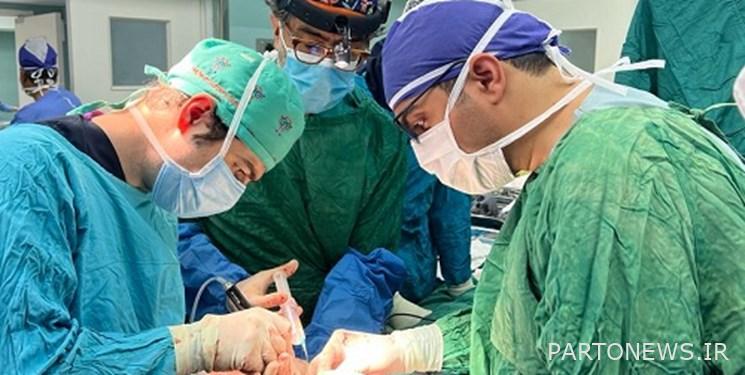Performing brain surgery while awake for a patient with epilepsy

According to Fars news agency’s health department, Neurosurgeon Mohsen Kosha, a neurosurgeon, reported on the operation of a brain lesion causing seizures in a patient with drug-resistant epilepsy while awake and said: The patient is a 29-year-old man who is suffering from continuous seizures. He was examined by the Epilepsy Fellowship Team and the Superspecialized Seizure Diseases Team of Imam Hossein (AS) Hospital and became a candidate for surgery.
He further stated: In this case, there was a fetal lesion in the frontal cortex of the brain, which was caused by a disturbance in the formation of the cortex of the brain, and was a factor in the occurrence of seizures and cell growth outside of the normal focus of the cortex. cerebellum (focal cortical dysplasia, FCD).
A member of the academic faculty of the university pointed out that this person was operated on in a sick state and said: due to the location of the lesion near the movement area of the face and hands, the patient was operated on while awake, and he had full cooperation with the anesthesia and surgery team. had
While emphasizing the use of local equipment in performing this surgery, Kosha stated: The navigation device, which is domestically produced, played an important role in diagnosing the exact location of the lesion in this surgery. Also, through MRI and ICAG (Electrocorticography) during the operation, the cause of the seizure was investigated and surgically removed completely.
The difference between normal and awake brain surgery
Also, Sohrab Salimi of Neurosurgery Anesthesia Fellowship pointed out the importance of examining the condition and condition of the patient by the expert and subspecialist team to perform the surgery normally or awake, stated: According to the evaluations, if the convulsive focus is near the functional control parts If the person is in the brain, the patient has a better chance for surgery while awake, so that the function of these centers can be controlled during the operation, and no disturbance, weakness, or deficiency is introduced to the vital centers that are movement, speech, and vision. In this type of surgery, the patient quickly returns to his previous functional condition after the operation.
Regarding the difference between this type of surgery and usual surgeries, he stated: In surgeries that are performed awake, during the operation, the patient has the necessary cooperation with the surgical team and the anesthesia team with the preparations that have been given to him in advance. He sees, speaks and can move his limbs.
He continued: In other surgeries, there is a second choice; In other words, if the possibility of anesthesia of the surgical site is diagnosed, if this operation is not successful, there is a possibility of general anesthesia at the same moment, but in this operation, performing general anesthesia may affect the patient’s speech center, vision, or motor organs. Import a lot. Therefore, the team does not have a second choice in this type of surgery.
According to him, performing an EEG during the operation is also one of the major differences of awake brain surgery.
The associate professor of the university clarified: After the surgeon reaches the point where the intervention should take place, the team’s companionship with the patient increases, and depending on the location of the lesion, he is asked to speak or move his limbs until the center of speech, vision and movement is reached. The person should be evaluated.
The member of the academic staff of the university emphasized the importance of accompanying the patient with the surgery and anesthesia team and added: Before surgery, the patient should be talked to so that he is fully prepared and the success rate of the surgery increases.
He stated: Performing brain surgery while awake for patients with treatment-resistant epilepsy has a high cost abroad; Therefore, if a service is provided in the country, information should be provided so that patients can refer to the provider’s centers.
end of message/
You can edit this article
Suggest this article for the first page

